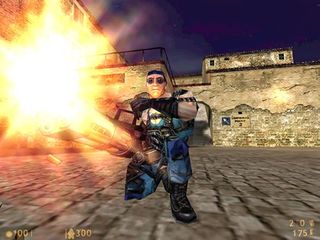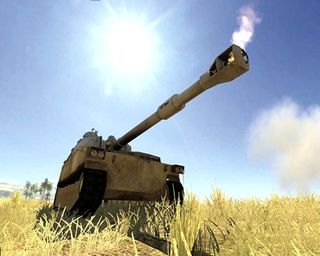Like Hitler’s invasion of Poland or the first floor of the Empire State Building, Counter-Strike was always going to be the start of something big. Its release, in 1999, marked the bona fide birth of the modding scene, spurring bedroom developers to craft new adventures out of official titles. Modding had already been around for a while, spawning popular ditties like Team Fortress, but Counter-Strike was the first of its kind to encourage people to buy the original game, in this case Half-Life.

Above: Team Fortress Classic
After CS, “game companies opened up their titles to modders, and modding went mainstream, more prolific,” says Scott Reismanis, founder of theMod Database. “These days you can look at any game development house and some of their employees started out as modders. Universities even have three-month and six-month final year mod projects as a way to give their students real-world experience.”
But, somewhere along the way, mods lost their mojo. Despite the occasional blast of genius, like 2006’s Tremulous mod for Quake III Arena, there’s cause for argument that the originality and quality of the early scene petered out. Stephen Gaffney, business development manager for Splash Damage (a mod team that went commercial with titles like Wolfenstein: Enemy Territory and Enemy Territory: Quake Wars), reckons today’s modders are much less prolific. “There are fewer mods today than in 1999 when Half-Life was big,” he says.

Above: BTF1942's Desert Combat influenced Battlefield 2
“I would say that the first Half-Life game alone probably had more mods than all contemporary PC titles combined, so there’s definitely been a decline.” Gaffney points out a shift from total conversions toward smaller, more technical mods. This could be due to a change within the community. Once, the modding scene was a cottage industry, full of creative people that worked for months to ensure that their spin-offs would match the visual/design standards of the original titles. Counter-Strike, for example, went through six betas before its first incarnation. “The mod community changed,” says Luke Parkes-Haskell, a modern modder who works with the Unreal Engine. “There are fewer dedicated hackers. People expect to make their dream game and hit the stumbling block of not having a clue how games are developed, let alone how to make small changes of their own.”
